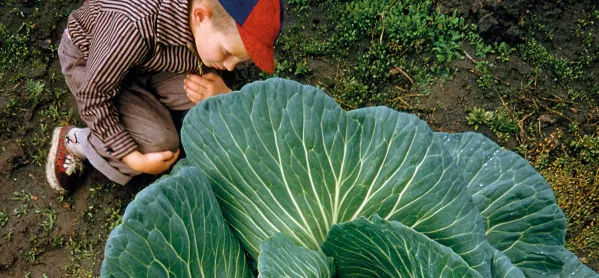What makes a school outstanding? We asked pupils
Share
What makes a school outstanding? We asked pupils
Primary pupils think that the secret to a great school is having kind teachers who listen, love and care for them, according to a Tes survey.
When asked to list the top ten things that make a great school, thousands of primary school children said it was the teachers themselves, not their teaching, who were the most important element of their school experience.
A primary pupil in the Lake District said: “Our school is great because the teachers are not just doing it for the pay. It’s a bit like a family that is always there for you, they make a fuss of you on your birthdays, when you arrive at the school and when you are leaving. They support you no matter what you are going through, even if it’s happening in your house.”
Secondary pupils were recruited for the same task (we put the question to thousands of five to 16-year olds from 47 schools across the UK), and although they agreed with their younger peers, and placed ‘great and supportive teachers’ in second place, it was ‘a range of extra-curricular activities’ that gained the top spot.
It’s not surprising that pupils want supportive teachers and the opportunity to take part in engaging off-timetable activities (extra-curricular activities were ranked number two in the primary list). But with budgets being stretched tighter than ever, and teachers increasingly overworked and stressed, are schools now being blocked from delivering the very things that, in students’ eyes, make them truly exceptional places?
“We are so busy in schools now that we are at risk of missing things we should not miss, and we have to sacrifice our evenings or weekends to catch up on jobs we have not done because we have prioritised the pastoral part of our role,” says one primary senior leader, who wishes to remain anonymous.
“And when you report things and nothing happens, then you end up trying to fix it yourself with no training or resource. We are fulfilling our duty despite the system, when the system should really be doing all that it can to make this part of the job easier.”
Extra-curricular activities too, are becoming increasingly difficult to facilitate, says Kate Jordan, acting headteacher at Cottingham High School in East Riding.
“The last thing you want to go are those exciting opportunities for children. Some children don’t get those opportunities at home, they rely on school for that. Budget constraints bring about time constraints, and it has got more difficult to offer those opportunities,” she says.
To keep these enriching opportunities running takes endless commitment from school staff, says the chief executive of the Duke of Edinburgh Award, Peter Westgarth. Although it’s obvious that it has become harder to provide extracurricular activities, teachers and schools refuse to give up, he says.
“In our experience, it’s harder but extracurricular activities aren’t completely squeezed out yet. What’s amazing is, despite all of the external pressures, teachers still volunteer to give their own time to make these things happen,” he says.
The question is: for how much longer can these make-do approaches last?
Pupils have voiced their opinions and want their schools to not only help them to achieve academically, but guide them to follow their hearts in clubs and activities, protect them when they are vulnerable, and for school to be a fun, welcoming and engaging place to spend their days.
There is not much there that a teacher would disagree with. But there is much that is getting ever harder to deliver.
What the pupils prioritised
Primary top 10
1. “Kind teachers who listen, care and love us”.
2. Extracurricular activities.
3. Friendship.
4. Creative, fun and exciting lessons.
5. Good outside environment to play and learn in.
6. Vibrant learning environment.
7. Keeping healthy and fit.
8. Happy children and happy teachers.
9. Engaging reward systems.
10. Safe buildings.
Secondary top 10
1. Range of extracurricular activities.
2. Great and supportive teachers.
3. Safe and supportive community.
4. Great facilities.
5. Enjoyable, personal and practical lessons.
6. Mutual respect between teachers and students.
7. Great pastoral care and extra support.
8. Diversity, equality and inclusion of the student body.
9. Range of subjects.
10. High aspirations and encouragement to get the best result.
This is an edited article from the 27 July edition of Tes. Subscribers can read the full article here. To subscribe, click here. This week’s Tes magazine is available in all good newsagents. To download the digital edition, Android users can click here and iOS users can click here.




